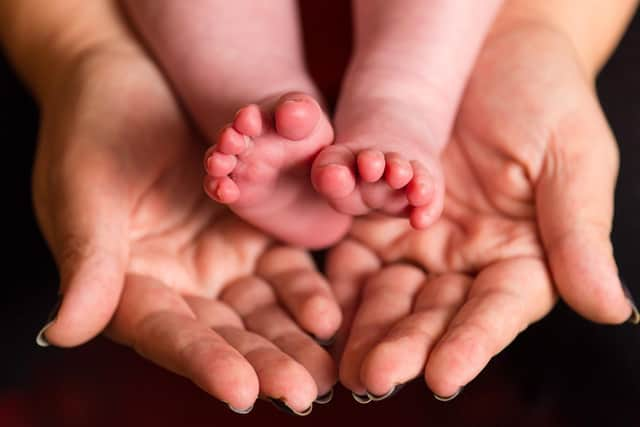C-sections make up nearly a third of Wigan births
and live on Freeview channel 276
NHS England recently told hospitals to stop using caesarean section rates as performance targets as they might be "clinically inappropriate and unsafe" for patients – though these figures pre-date the move.
Of the 840 births recorded in Wigan in 2020-21 in Office for Health Improvement and Disparities figures, 30.4 per cent were delivered by C-section.
Advertisement
Hide AdAdvertisement
Hide AdThat was down from 30.9 the year before, but more than 27.9 in 2018-19.


Across England, 32.5 per cent of births in England in 2020-21 were delivered by caesarean section – up from 30.1 in 2019-20.
This rate was the highest since records began in 2014-15.
The figures also show huge disparity in rates between local areas – from as high as 39.8 per cent in Thurrock, in the East of England, to just 24.9 in Telford and Wrekin, in the West Midlands.
A recent review of failings at the Shrewsbury and Telford Hospital NHS Trust – which is the main provider of services for Telford and Wrekin – found some mothers were made to have natural births when they should have been offered a caesarean.
Advertisement
Hide AdAdvertisement
Hide AdThe review found that around 200 babies and nine mothers could have survived if it had provided better care while the trust aimed to preserve its low caesarean rate.
Following the Government's recommendation, NHS England told all maternity services to stop using total caesarean section rates as a means of performance management earlier this year.
The Royal College of Obstetricians and Gynaecologists said it welcomed the decision from NHS England, as caesarean birth targets are "not appropriate in individual circumstances".
Dr Teresa Kelly, consultant obstetrician and spokesperson for RCOG, said the national increase is due to a higher number of complex births – partly caused by the rises in both obesity rates and the average age of women giving birth.
Advertisement
Hide AdAdvertisement
Hide AdShe said both vaginal and caesarean births carry certain benefits and risks, but that a woman's informed choice should always be respected and supported.
Dr Kelly added: “Childbirth is unpredictable and complications can and do arise.
"The safety and care of women during labour and birth and the safe arrival of their babies should always be the main focus, and medical intervention in some cases can be lifesaving."
The Royal College of Midwives said it is important women have personalised care, and a pregnancy and birth that is right for them.
Advertisement
Hide AdAdvertisement
Hide AdBirte Harlev-Lam, executive director at RCM, added: “Decisions about clinical care should not be dictated by targets and should be made in the best interests of the woman and her baby, in collaboration with the woman."
Separate figures from the OHID also show that the fertility rate in England has fallen to the lowest level on record.
The general fertility rate – measured by the number of babies born for every 1,000 females aged between 15 and 44 – fell to just 55.3 in 2020, the latest figures available.
In Wigan, the rate was 55.4 in 2020 – down from 58.1 in 2019, and also the lowest since comparable records began in 2010.
